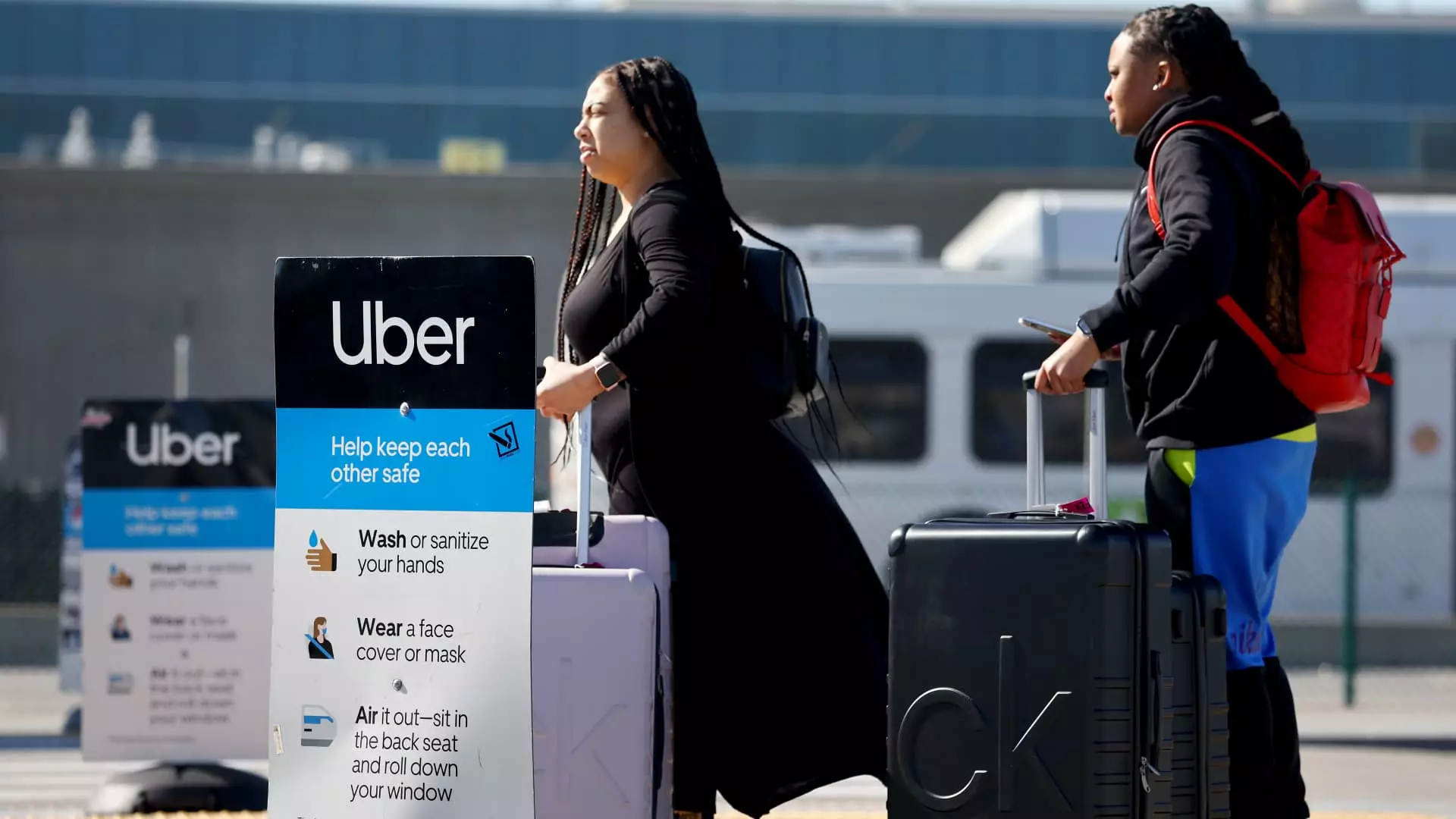In an intriguing strategic maneuver, Delta Air Lines is set to transition its loyalty program, SkyMiles, from a long-standing partnership with Lyft to a new affiliation with Uber. This decision, announced recently, marks an end to an eight-year collaboration between Delta and Lyft, pointing towards a burgeoning trend among airlines to diversify their loyalty networks. With this shift, Delta aims to provide additional value to its SkyMiles members while capitalizing on the growing demand for convenient travel solutions.
Starting this spring, SkyMiles members will have the opportunity to accrue miles from various Uber services, fundamentally altering how they earn rewards. Specifically, travelers using UberX for airport rides will receive one mile for every dollar spent. Premium options like Uber Comfort and Uber Black will yield two miles per dollar, while the top-tier Uber Reserve service awards three miles per dollar. Furthermore, SkyMiles members can earn miles for Uber Eats food-delivery services, specifically with orders exceeding $40, thereby integrating everyday choices into their travel rewards.
This program not only broadens the earning potential for frequent fliers but also aligns Delta’s loyalty ambitions with the demands of modern consumers who prioritize convenience and efficiency in their travel experiences. Uber CEO Dara Khosrowshahi emphasized this goal by highlighting the company’s commitment to making travel as seamless and cost-effective as possible, thereby enhancing the overall travel journey for customers.
Delta’s shift to Uber unfolds amid a competitive landscape where airlines are increasingly forming partnerships that extend beyond traditional airline collaborations. This strategy is not unique to Delta; other airlines are pursuing similar alliances to enhance the reach of their loyalty programs. Delta has already established noteworthy partnerships with brands such as Starbucks, Hertz, and Ticketmaster, which enable members to accrue points in various everyday scenarios.
By aligning with Uber, a major player in the ride-hailing sector with a vast user base, Delta further amplifies its market presence and the utility of the SkyMiles program. Uber boasts an impressive 161 million active users, dwarfing Lyft’s 24.4 million, illustrating a strong preference among consumers for Uber’s services. This transition is poised to deliver significant engagement for Delta as it taps into Uber’s extensive network of users.
For customers who previously linked their accounts with Lyft, a transition period has been designated until April 7, allowing them to continue accumulating miles in the interim. Delta has assured users that they will receive detailed communication regarding this shift, which signals Delta’s commitment to create a smooth transition while respecting existing customer loyalty.
Lyft’s response to its termination of partnership with Delta reflects an ongoing diversification strategy, as the company seeks to maintain relationships with other major brands across various sectors. By positioning itself alongside Alaska Airlines and Chase, among others, Lyft continues to cater to loyal customers while enhancing its service offering.
While Delta has not publicly disclosed its reasons for shifting from Lyft to Uber, financial implications cannot be overlooked. Delta’s credit card partner, American Express, plays a critical role in this schema, providing customers with ride credits that enhances Uber’s attractiveness compared to Lyft. With estimates suggesting that Delta stands to garner about $7 billion from its AmEx partnership in 2024, alongside a long-term target of $10 billion annually, the financial benefits of this strategic alliance become glaringly evident.
Moreover, as Delta prepares to release its quarterly earnings, this strategic shift may be a significant factor in its financial outlook. By linking SkyMiles with a dominant player like Uber, Delta not only fosters customer loyalty but also stands to gain economically from increased member engagement with both travel and supplementary services.
Delta’s transition to Uber serves as a pivotal moment in the airline’s loyalty efforts, driven by the desire to enhance customer experience and maximize revenue. As the airline industry continues to evolve, such partnerships will likely reshape how travelers earn and utilize rewards, making convenience and affiliation increasingly critical components of the modern travel experience.


Leave a Reply